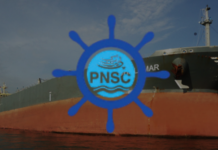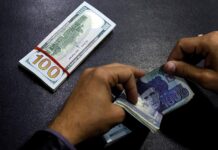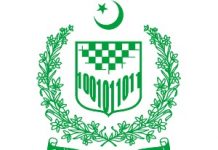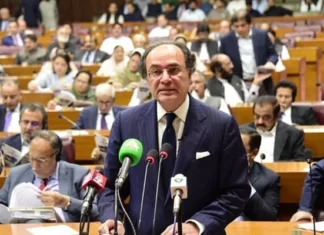Despite strong objections from several business and export associations, the government has made it clear that the Export Facilitation Scheme (EFS) will not be scrapped in the 2025-26 budget, Business Recorder reported.
Leading export associations and manufacturers-cum-exporters raised serious concerns about the scheme during a meeting with the Senate Standing Committee on Finance on Monday.
BR cited a senior government official confirming that the EFS will remain in place and will not be abolished in the upcoming federal budget.
The Senate Standing Committee on Finance, chaired by Senator Saleem Mandviwalla, convened to consult with industry representatives about their proposals for the next budget.
The meeting focused on challenges faced by major sectors such as textiles, poultry, dairy, steel, property development, and consumer goods. Various associations submitted their budget proposals, with requests for tax relief and reductions, especially for the dairy and textile sectors.
Chairman of the Federal Board of Revenue (FBR) Rashid Mahmood Langarial addressed the concerns, urging business groups to propose alternative measures to address potential revenue shortfalls arising from any tax reductions.
“How will the tax gap be filled after granting any concessions or reductions in tax rates in the budget?” Mahmood asked, emphasizing the need for concrete proposals.
Representatives from the Dairy Association requested a reduction in the sales tax on dairy products, especially milk, which is currently taxed at 18%. They argued that milk is typically not taxed globally and urged the government to align with international practices.
However, the FBR chairman asked them to submit proposals on how to offset the revenue loss from such a tax cut.
The Fruit Juices Council also made a case for reducing the Federal Excise Duty (FED) from 20% to 15%, citing a 40% decline in sales over the past two years due to the current tax regime.
In the textile sector, the All Pakistan Textile Mills Association (APTMA) proposed removing yarn and fabrics from the EFS and placing them on the negative list. This would shift them to the normal tax regime, as the association argued that the current EFS structure was hurting the domestic industry. APTMA also recommended lowering the advance tax from 2.25% to 1% in the budget.
APTMA Chairman Kamran Arshad warned that textile exports had been stagnant for the past two years and criticized the EFS scheme for pushing the industry toward collapse. He highlighted issues like the imposition of 18% sales tax on local cotton and the duty-free import of foreign cotton. The association also recommended fixing electricity rates at 9 cents per unit.
Meanwhile, the Towel Manufacturers Association of Pakistan proposed restoring the SRO.1125, which they claimed was financially detrimental to their industry after it was replaced by the EFS.
The industry has raised concerns about delayed sales tax refunds, which are often processed six months after submission. The towel sector is a significant contributor to Pakistan’s exports, accounting for nearly $2 billion in exports and 18% of the country’s total towel exports.
























